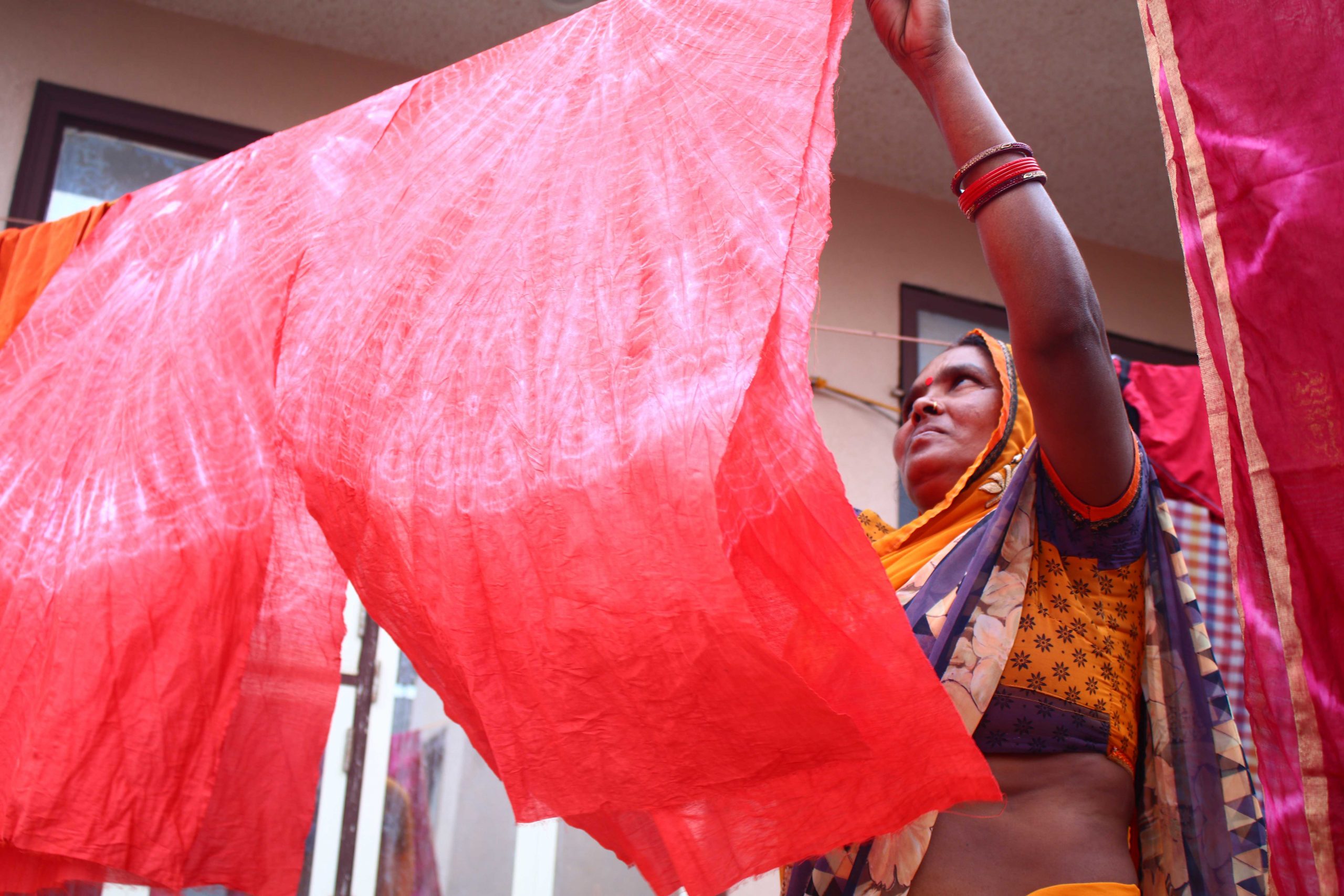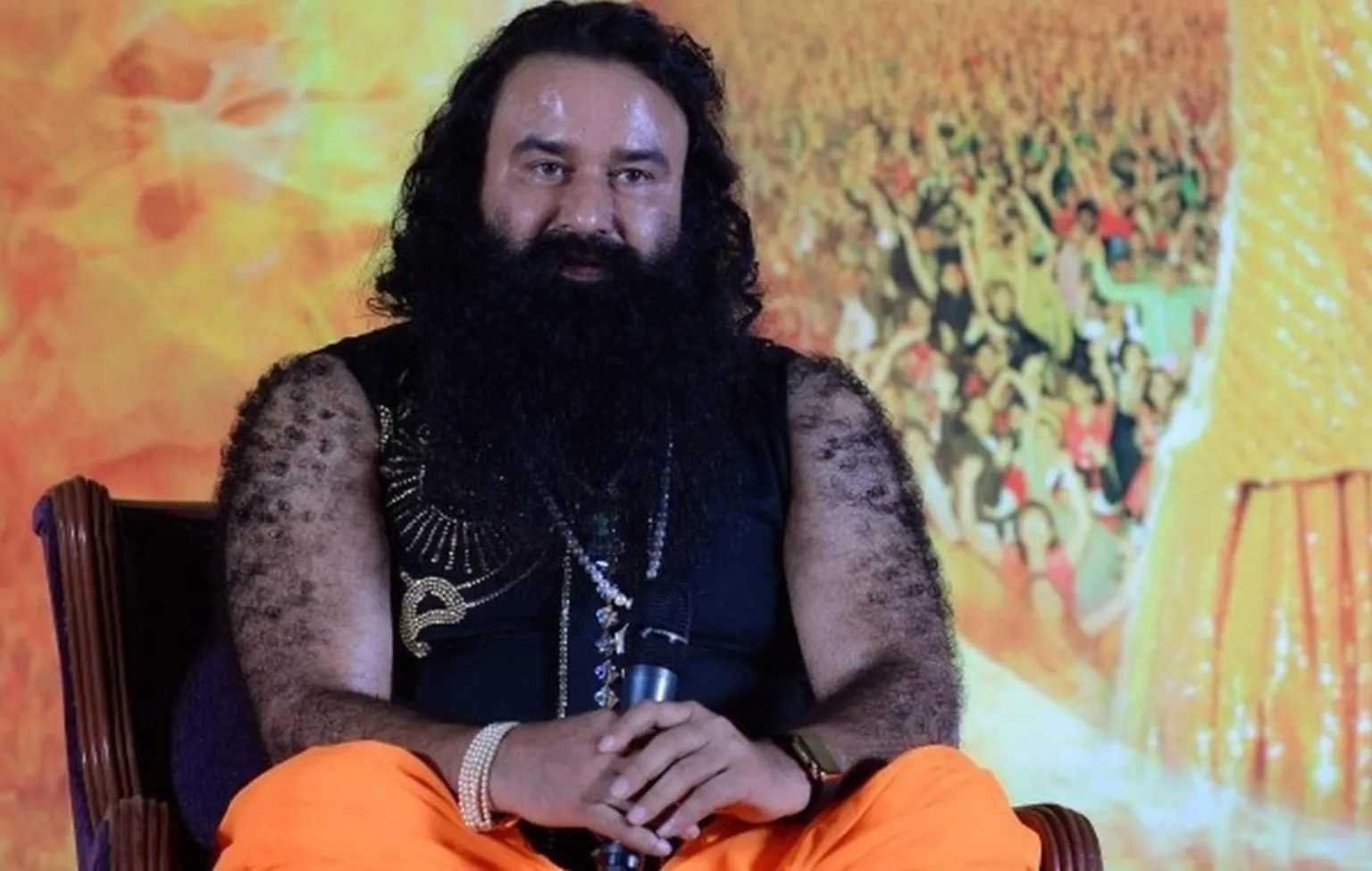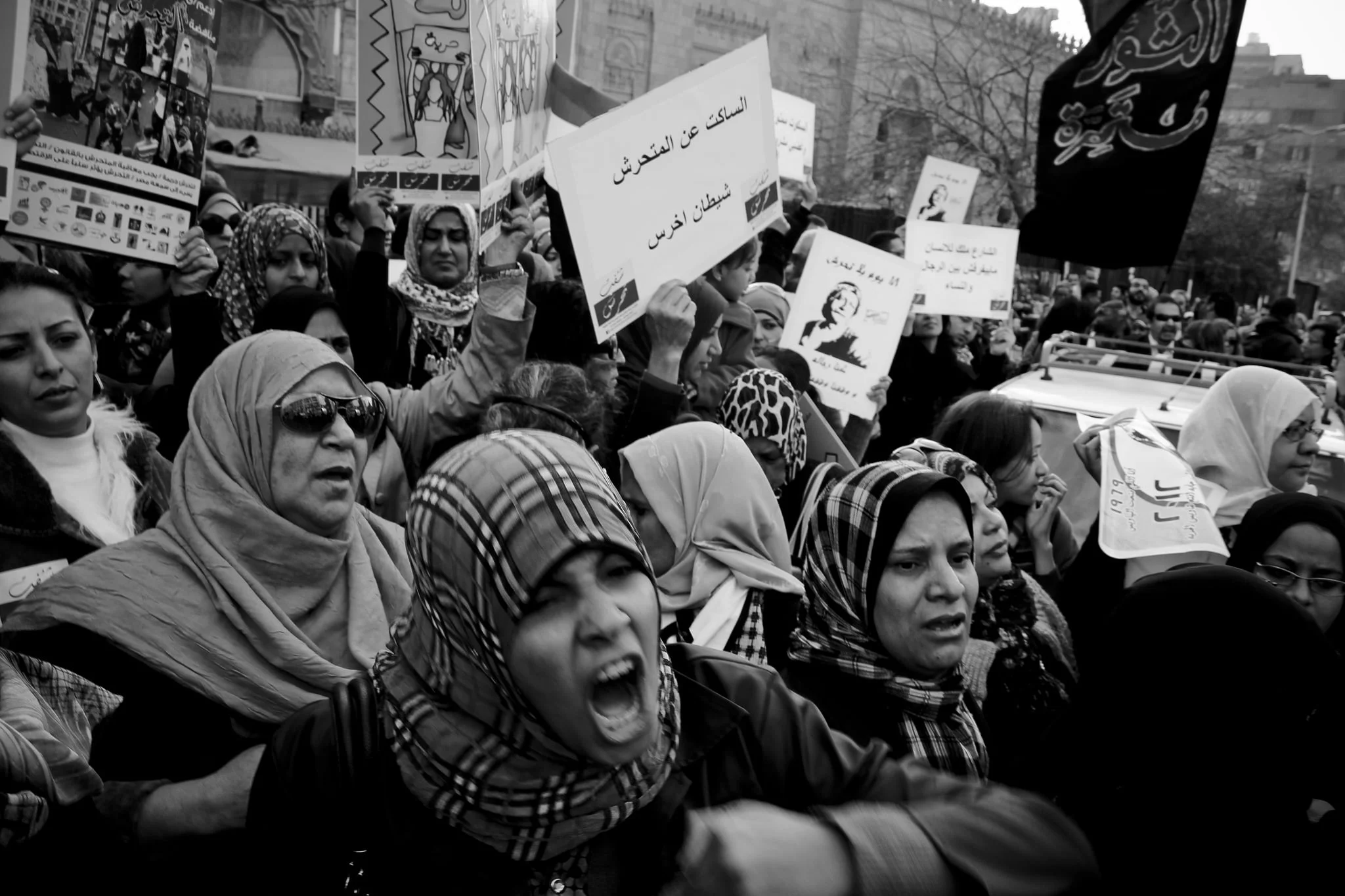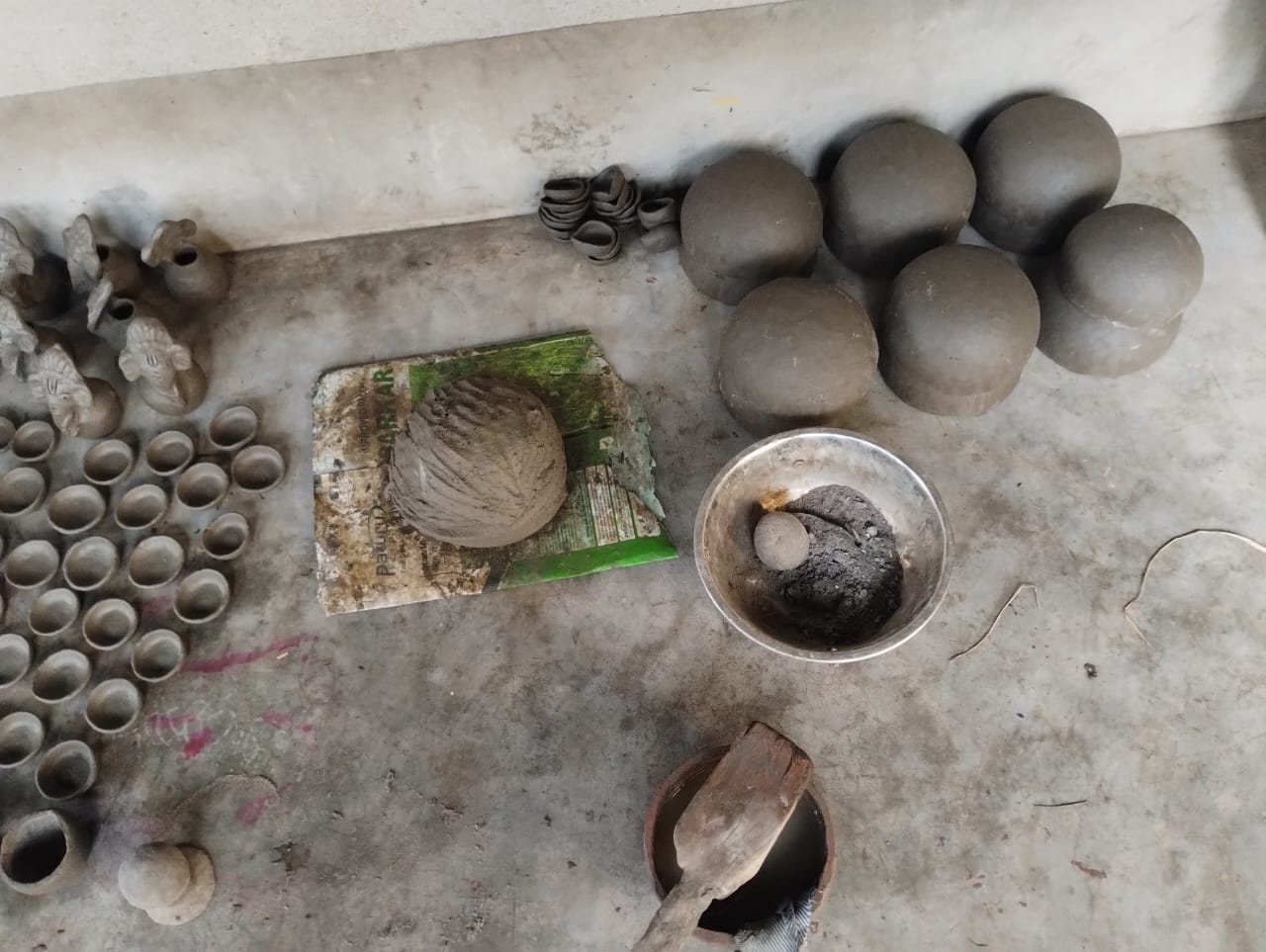On March 24, the Prime Minister of India declared a nationwide lockdown to combat the spread of coronavirus in the country. As a result of which, a crisis unfolded which saw many migrant workers facing several difficulties in terms of lack of employment, food, shelter and transport to go back to their villages. As factories shut down, several workers, most of whom are daily wage labourers, lost their jobs due to factories being shut down. Many others found themselves walking kilometres on highways in an attempt to reach their homes. In such dark times, a small initiative of manufacturing tie and dye products brought light into the lives of four women migrant workers in the form of employment. Today, Beena, Sushila, Sunita and Maya are the heart and soul of Project Dor.
In such dark times, a small initiative of manufacturing tie and dye products brought light into the lives of four women migrant workers in the form of employment. Today, Beena, Sushila, Sunita and Maya are the heart and soul of Project Dor.
Enactus (Kirori Mal college), with over 70 members, is a student-run chapter under Delhi University that runs the initiative. Project Dor, the first social enterprise under Enactus Kirori Mal, was started in 2016 with the aim to revive the traditional artform of tie-and-dye while empowering and socio-economically uplifting a community of rural migrants. Each year, the Dor team is headed by second-year students in undergraduate course at Kirori Mal College. This year it is headed by Muskan Jain and Aishwarya Sinha.
Also read: Migrant Women Workers On The Road: Largely Invisible And Already Forgotten
Project Dor began as a skill development program with a community of snake charmers based in Sapera Basti, Najafgarh, Delhi. Due to disintegration of the Najafgarh community, Project Dor shifted to Dwarka. The project in collaboration with Deepalaya (an NGO) started working alongside a community of underprivileged migrant women hailing from Bihar and Jharkhand based in JJ Colony in New Delhi’s Dwarka. Struggling to find a regular source of income, bound by social prejudices and regressive patriarchal norms, the lives of these women were profoundly impacted by Project Dor.
Speaking to Feminism in India, Maya recounted, “When I first began working with Project Dor my family members were skeptical about the work I was doing . Some even suggested that I leave the job. However, as time passed they began to understand the job and appreciate it.” She also said, “My friends now appreciate my work. Some even ask me if I can arrange a similar job for them.” Project Dor has provided them with an opportunity to not only support their family economically and become independent, but also gave them a chance to live their lives with dignity.
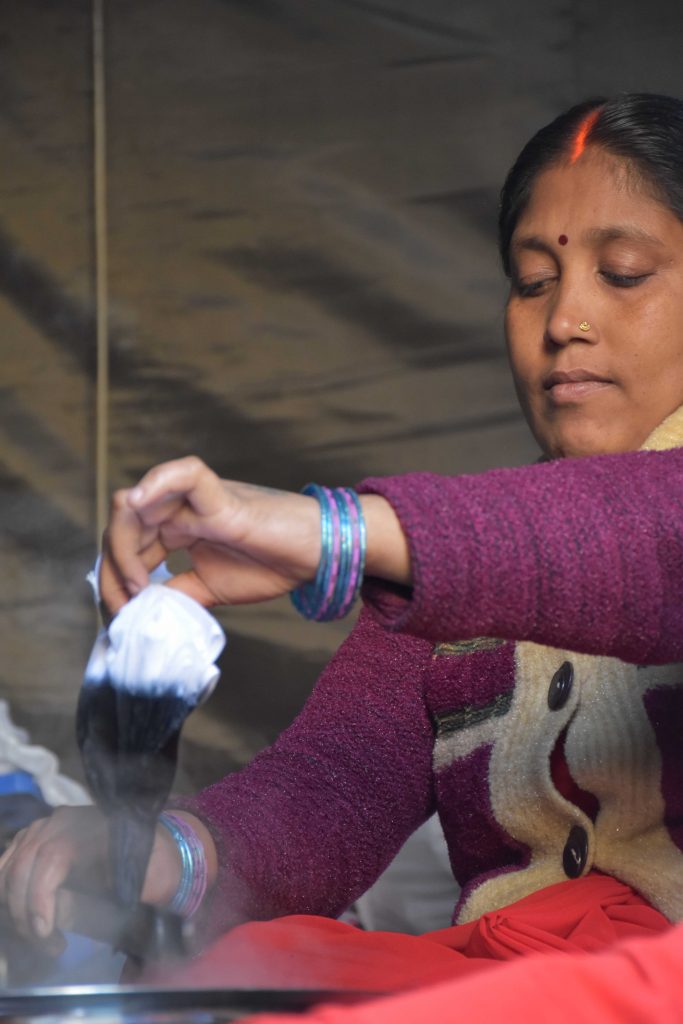
The team members of Project Dor, assisted and supervised by designers, started training the members of the community about the process of making tie and dye products. Later on, more complex tie and dye methods such as shibori, lehriya and bandhani were also taught to them. Maya mentioned, “At first it took me sometime to understand the process and I was unsure if I would be able to do it by myself. However, as time progressed I learnt everything. Nowadays, I look forward to beginning working on new materials.”
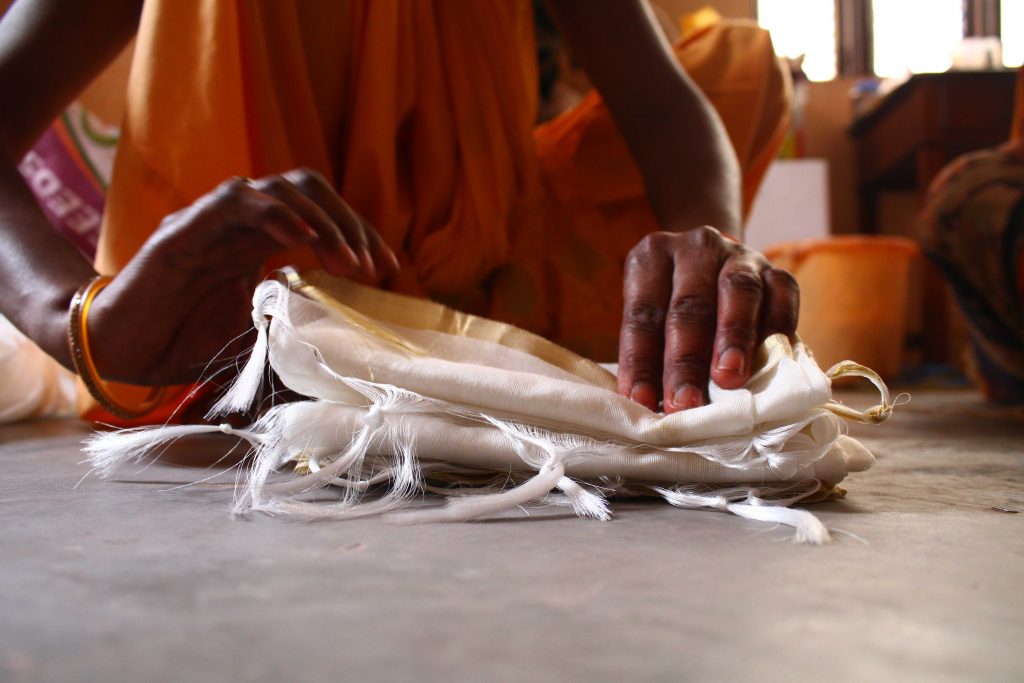
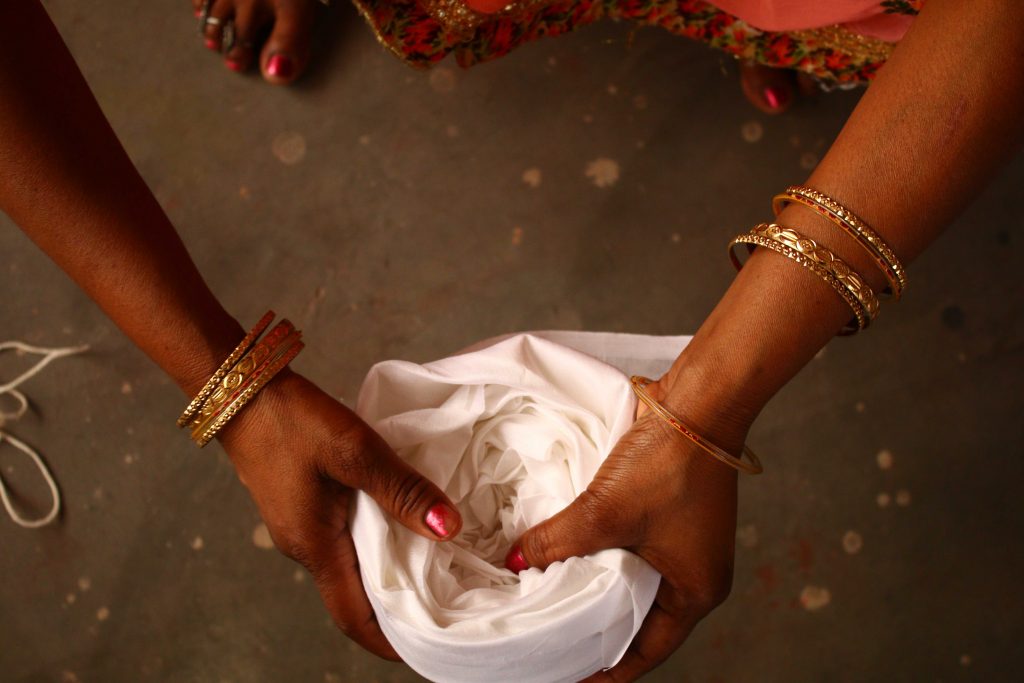
Today, they are fully trained in the production process of over 30 hand-crafted tie-and-dye designs on scarves, dupattas and cushion covers. These products are made of superior quality cotton and chanderi fabrics and fully customisable to serve different needs of people.
Today, the workers under Project Dor are fully trained in the production process of over 30 hand-crafted tie-and-dye designs on scarves, dupattas and cushion covers. These products are made of superior quality cotton and chanderi fabrics and fully customisable to serve different needs of people.
Due to the global pandemic, the production process was shut down for the first three months of the lockdown. However, it restarted again in August ensuring safety and distance, with the team in close contact with the members of the community, virtually.
Sunita said, “During the pandemic when many lost their jobs I am grateful that I not only had a job but also received full payment during those months when I did not work.” She further added, “When phase one of lockdown began and it was time to return back to work my family was concerned about my safety. The team members of Project Dor provided each of us with hand sanitizers, gloves and hair nets.”
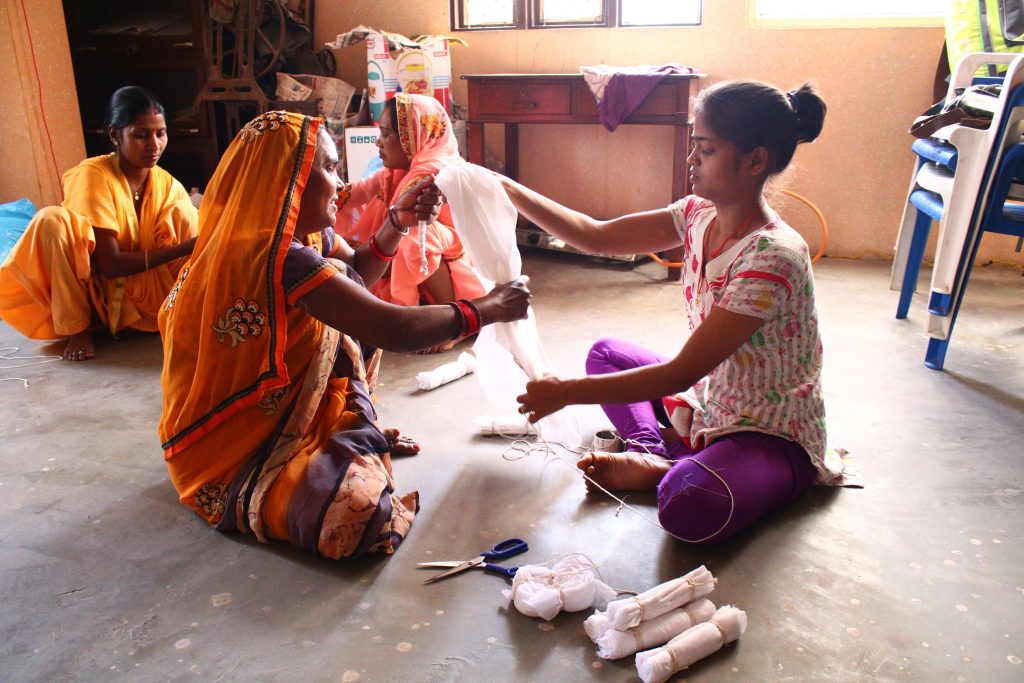
The profits that are made from selling these products are shared among its makers, who the team members believe are the rightful owners and identity of Project Dor. Some amount of the profits is also invested back for the betterment of the business. A general curriculum has also been devised to teach the women further intricacies of the project so that they adapt to more complex techniques and so as to eventually hand over the business to them. Sunita said, “The one thing that I love about my work is the flexible work hours. Even after completing my work, I can go back to my family and spend time with them.”

Also read: COVID-19 Impact On Women Migrants From North-East India: Caught In Uncertainty
The project has also received several recognitions from dignitaries like the Chief Vigilance Officer of the Indian Tourism Development Corporation (ITDC). Each product is quality-checked carefully and thoroughly before sending them out to the customers. Project Dor also believes in sustainable waste management and utilise the fabric from their defective products to handcraft potlis. Currently products under Project Dor are available on the Facebook Store, and Shop Native. Project Dor’s stalls were also put up at Vivanta by Taj, India International Centre, Dastkar Nature Bazaar, Bikaner House and Dilli Haat in INA market among others. They were also able to spread awareness about the cause at different college fests and events. The project has also been successful in collaborating with various enterprises and brands such AIIMS, IBM, Vishnu Store, Adah by Leesha, Vaaya India and Redefine Marcom.
So this festive season, let us tie together an underprivileged community’s hopes and happiness with Khushiyon Ki Dor, while bringing an old art form back in fashion.
Image Source: All pictures as provided by Aishwarya Sinha, the Marketing Head of Project Dor
About the author(s)
Srijani Roy is currently pursuing her Master's in Sociology from Jadavpur University. She is passionate about studying Gender related issues, issues pertaining to children and Human Rights. She has a wide range of experiences in non-profit work with several organizations in different capacities. When not working you will find her reading a book or sleeping.
